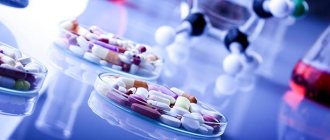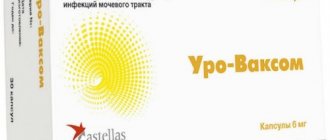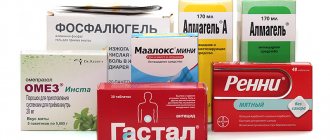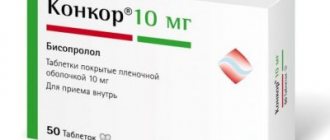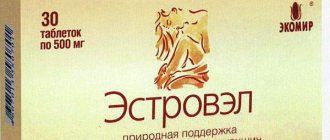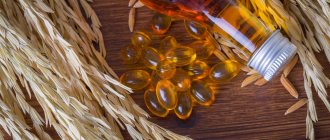In fact, we all need antioxidants to live active lives and feel good for many years to come. Women often take antioxidants to keep their skin firm and youthful, and rightly so. But these substances are also needed by the cells inside the body, where their work is not so noticeable, but is also very important. They protect the genetic material of eggs, cells of the immune system, and blood vessels... How do they do this, and why does the body need antioxidants? This is what we will talk about.
What are antioxidants
Antioxidants are molecules that fight oxidative processes in the body caused by free radicals.
The latter are solid, liquid or gaseous unstable particles. They are formed as a result of metabolic processes or enter the body from the outside, for example, with exhaust gases. Oxidation causes cell damage; some of them can be restored, others are destroyed forever. In this case, free radicals perform important functions [1]. Immune cells use them to fight infections [2]. Factors that increase the production of free radicals:
- internal inflammation;
- contaminated air;
- excessive exposure to ultraviolet radiation;
- cigarette smoke.
but on the other hand
Who said that free radicals are necessarily bad? Free radicals are not always a dangerous byproduct of metabolism - many processes in the body cannot do without them: immune cells use free radicals to neutralize bacteria, viruses and cancer cells. Does this mean that excessive consumption of artificial antioxidants will lead to disruption of these functions?
As it turns out, yes: Long-term studies have shown that taking beta-carotene, vitamin A and vitamin E increases the likelihood of lung cancer and mortality in smokers and those who worked with asbestos. Women who took supplements with vitamins C, E, beta-carotene, selenium and zinc were more likely to develop skin cancer, and men taking vitamin E increased their risk of prostate cancer. To date, the danger of biological antioxidant additives remains one of the few fully proven effects.
Antioxidant dietary supplements interact with medications: vitamin E enhances the effect of blood thinners, increasing the likelihood of bleeding, and antioxidants can reduce the effectiveness of anti-cancer therapy - therefore, during drug treatment, consultation with your doctor is required before taking any medications or dietary supplements.
In addition, under certain conditions, antioxidants can also act as oxidizing agents: they take away electrons from other molecules, turning them into free radicals.
***
Physiological processes in the body are interdependent, interfering with this fragile system without indications is dangerous: there is no clear evidence of the benefits of antioxidants, but there is convincing evidence of the dangers of taking dietary supplements containing them. A healthy diet provides the body with all the necessary microelements, vitamins and antioxidants without any health risks.
Photo: unsplash.com/Towfiqu barbhuiya, Magalie De Preux, Vedrana Filipović; pexels.com/Nataliya Vaitkevich, cottonbro
What are antioxidants for?
Oxidative stress, which occurs due to free radicals, contributes to various diseases, including cardiovascular disease, diabetes, Alzheimer's disease, Parkinson's disease, and eye problems such as cataracts and age-related macular degeneration [3]. Antioxidants can slow down these processes, and in some cases reverse them, restoring damaged cells.
Fighting oxidative processes is the main task of antioxidants. As a result, they:
- help cells recover;
- slow down the aging process;
- strengthen the immune system;
- optimize metabolic processes in the body;
- reduce the risk of heart disease;
- protect the body from harmful radiation, including ultraviolet radiation.
The effect of antioxidants on the body: is there any benefit from taking them?
Most of the promises made by manufacturers of dietary supplements, cosmetics and foods high in antioxidants have no scientific basis - this is the current opinion of the WHO.
Of all the proposed effects, only the ability of vitamin C in large doses to reduce blood pressure and cholesterol levels, as well as alleviate colds, but not prevent them, has been proven. Taking antioxidants in normal daily doses, which are usually offered in dietary supplements and vitamin complexes, is not able to reduce the likelihood of cardiovascular and infectious diseases.
There is insufficient evidence to support the ability of antioxidant supplements to reduce the risk of developing diabetes, cataracts, and degenerative diseases of the nervous system. Dietary supplements are also unable to prevent the development of cancer.
As for the effect of antioxidants from food on reducing the likelihood of developing cancer and metabolic diseases, it is impossible to reliably establish whether the positive effect of eating vegetables and fruits is due to antioxidants, since in addition to them, vegetables and fruits contain vitamins and minerals necessary for the body, fiber and slow carbohydrates that promote normal digestion and ensure a gradual increase in glucose in the body.
What are antioxidants?
Antioxidants produced by the body itself are called endogenous, while those coming from outside are called exogenous. The following microelements are considered the most active in the fight against free radicals, which can be replenished with the help of products:
- vitamin C (citrus fruits, kiwi, red bell pepper, rose hips, spinach);
- vitamin E (vegetable oils, broccoli, nuts, fish, avocado);
- vitamin A (liver, carrots, sweet potatoes, cod liver oil, salmon, carrots);
- polyunsaturated fatty acids Omega-3 and Omega-6 (tuna, salmon, pink salmon, seafood);
- beta-carotene (brightly colored vegetables and fruits such as carrots, spinach, peas, mango);
- lycopene (pink and red vegetables and fruits, including tomatoes, watermelon, red cabbage);
- lutes (green leafy vegetables, oranges, papaya, corn);
- selenium (rice, wheat, whole grains and nuts, eggs, legumes and cheeses);
- coenzyme Q10 (herring, sesame, chicken, beef, broccoli);
- green tea and ginkgo biloba extracts;
- resveratrol - natural phytoalexin (dark grape varieties, red wine);
- whey, Greek yogurt.
Heat treatment of foods can either reduce or increase their antioxidant content. Thus, lycopene becomes more bioavailable after cooking tomatoes. Cauliflower, zucchini and peas, on the other hand, lose most of their antioxidant activity after cooking.
Antioxidants of youth
Antioxidant groups are biologically active substances that neutralize free radicals and prevent them from destroying healthy cells.
Table of antioxidants of various origins.
Natural (natural)
Natural antioxidants are divided into primary and secondary. Primary: enzymes contained in human cells, minerals and hormones. Our body is an intelligent mechanism that, to a greater or lesser extent, develops protection against free radicals. Secondary vitamins include vitamins; they are also present in our body, and their deficiency is replenished from the outside. Such ANTIOXIDANT VITAMINS are found in large quantities in fresh vegetables, fruits and berries.
Synthetic (medicinal)
Contain synthetic substances that also slow down oxidation processes. The most common are vitamin E, dibunol, probucol, ascorbic and lipoic acid. The release form is different - these can be ANTIOXIDANTS IN TABLETS, ANTIOXIDANT CAPSULES, as well as tinctures and balms. In fact, the form does not matter - the composition is the main indicator. Such MEDICINAL ANTIOXIDANTS also contain additives of plant origin, for example, ginseng, milk thistle, rose hips, ginger root.
Synergistic
MODERN ANTIOXIDANTS are distinguished by functional synergism, which allows achieving maximum protective effect with lower concentrations of substances. ANTIOXIDANTS - MICROELEMENTS with a complex mechanism of action. The presence of a large number of microelements is necessary, since their action is synergistic, and each reaction requires its own set of participants. The more effective the drug is, the more ANTIOXIDANTS and VITAMINS we see in its composition. PREPARATIONS with one trace element as an antioxidant are unlikely to truly fight free radicals. In this case, you need a complex of antioxidants.
THE MOST USEFUL ANTIOXIDANTS are 5 substances: vitamins A, C and E, selenium and lycopene. They stop the process of cell oxidation by free radicals.
And the development of inflammatory processes through oxidation by free radicals underlies most diseases. Oxylic is an antioxidant complex of vitamins, convenient because it contains all 5 main antioxidants.
MAIN ANTIOXIDANTS AND ANTIOXIDANT PROPERTIES OF SUBSTANCES
BETA-CAROTENE is an ANTIOXIDANT, the presence of which in vegetables and fruits is easiest to determine. This trace element gives them orange, red and yellow shades. But not everyone knows that this VITAMIN WITH A POWERFUL ANTIOXIDANT can also give a dark green color (sorrel, spinach, bell pepper). Vitamin A IS THE MOST IMPORTANT ANTIOXIDANT VITAMIN. It normalizes the functioning of the sebaceous glands, helps tissues recover, and promotes the rapid formation of new cells. This ACTIVE ANTIOXIDANT is largely responsible for the healthy and beautiful appearance of the skin.
VITAMIN C IS A GOOD ANTIOXIDANT - it normalizes cholesterol, maintains iron levels, and regulates skin pigmentation. This microelement stimulates the production of collagen, which makes the skin elastic, prevents brittle nails, and strengthens hair.
VITAMIN E is an ANTIOXIDANT with functions essential for the body. It protects against ultraviolet rays and promotes skin rejuvenation. It is difficult to choose the BEST ANTIOXIDANT, but many put vitamin E in first place - it is famous for its anti-carcinogenic effect, as well as for the fact that it prevents the formation of blood clots. In addition, vitamin E slows down fat oxidation.
GOOD VITAMINS WITH ANTIOXIDANTS must contain selenium, which is very familiar to teenagers and people with problem skin, because this microelement fights acne. Also, THIS POWERFUL ANTIOXIDANT maintains the thyroid gland in a normal state and fights tumors.
ANTIOXIDANT dietary supplements cannot do without lycopene. This microelement improves intracellular metabolism and helps reduce the risk of burns. It is also a powerful prevention of cardiovascular diseases. Lycopene began to be included in vitamin complexes relatively recently, so you can count on one hand those complexes that contain the most valuable antioxidant.
So, the BEST ANTIOXIDANTS are those that strengthen the immune system, promote skin rejuvenation, and strengthen the walls of blood vessels.
Other Antioxidants Vitamin B12, vitamin A (retinol), folic acid and pycnogenol are also antioxidants with healing properties. Pycnogenol - which is released from a special species of pine - is a powerful antioxidant. It fights excellent against toxins and is 20 times “stronger” than vitamin C. In addition, pycnogenol enhances the effect of vitamin C.
Coenzyme Q10, which strengthens the body's protective functions and slows down aging.
Many manufacturers of skin care products care about beauty and youth, adding vitamin complexes and antioxidants to creams to make the external product more effective. So, we all pay attention to cosmetics with coenzyme Q10, vitamins A, E and C. All products are good in the fight against age.
SOURCES OF ANTIOXIDANTS
Natural:
Provitamin A
– orange and dark green vegetables: spinach, dried apricots, sweet potatoes. But a necessary condition for its absorption is the addition of fat (butter and vegetable oil) to vegetables.
Vitamin C
– citrus fruits, rose hips, currants, strawberries, bell peppers, white cabbage.
Vitamin E
– grains, nuts, sunflower seeds, barley and salmon.
Selenium
– sardines, grains (especially wheat), liver, onions and garlic, Brazil nuts. However: an excess of selenium (more than 700 mg per day) often causes poisoning.
Lycopene
– many vegetables and fruits are red (tomatoes, pink grapefruit, watermelon, melon, persimmon, etc.).
Synthetic:
Specially produced tableted and encapsulated complexes, an antioxidant complex with selenium, that is, multivitamins containing valuable substances and minerals.
DRUGS - ANTIOXIDANTS
ANTIOXIDANTS AND MINERALS, which form the basis of anti-aging pharmacology, have taken it to new frontiers. Ineffective dietary supplements are becoming a thing of the past, only effective ones with a proven mechanism of action remain.
It is not without reason that in recent years we have observed a trend towards an increase in the use of vitamin complexes with antioxidants, against the background of which we and those around us notice changes for the better in both health and appearance, and the recommendations and names of these products are transferred from one consumer to another.
Oxylic is the most effective modern antioxidant complex.
For example, it contains organic selenium along with cysteine and methionine - carriers in the body. Without these amino acids, selenium does not work “as it should,” but this trace element is best known as the “longevity vitamin.”
Especially ANTIOXIDANT VITAMINS FOR WOMEN should contain this element. Also, complexes with antioxidant effects are more valuable if they contain a pair of lycopene and beta-carotene. These microelements mutually enhance each other's antioxidant effect. In short, Oxylic is distinguished by a synergistic combination of antioxidants in doses necessary for the body. Vitamins C and E, beta-carotene, lycopene, selenium, which are part of Oxylic, surround phospholipids.
A similar list of antioxidants makes the Oksilik formula work, and this greatly increases absorption in the gastrointestinal tract and “repeats” the food complex.
1 capsule contains 5 antioxidants Instructions Selenium
50 mcg
Vitamin E
36 mg
Vitamin C
300 mg
Lycopene
2 mg
Beta-carotene
2 mg
How to use:
Adults and children over 14 years old - 1 capsule 1 time per day with food.
Duration of treatment – 3-4 weeks
It is not a drug and is well tolerated. However, before using any drug, it is recommended to consult a doctor.
ANALOGUES OF OXILIC
There are no structural analogues of Oxilic with similar active elements.
What can replace Oxylic? Perhaps complexes containing vitamins C, E, beta-carotene and selenium. Or vitamins and microelements separately.
And if you choose a complex based on selenium content, choose the so-called second generation complexes containing improved selenium compounds (associated with organic substances). The price of Oxilic analogues depends on the elements contained.
List of antioxidant drugs
Glutargin provides protection - antihypoxic, antioxidant, cardio- and hepatoprotective. Indicated for liver diseases (for example, hepatitis). Alcohol poisoning can also be treated with glutargin.
Lipin - Known for immunomodulatory protection with strong antioxidant properties.
Epadol, Tecom, Omacor restore the balance of polyunsaturated fatty acids.
Dibikor and Kratal are amino acids that protect against stress. They are famous for their hypoglycemic and neurotransmitter functions. Dibikor is prescribed for diabetes mellitus and other dysfunctions of the endocrine system. Kratal is prescribed for autonomic neuroses and after exposure to radiation.
To summarize, let's say: the best antioxidant complex is enriching the diet with products with natural antioxidant properties, taking vitamin complexes, and using healthy cosmetics with antioxidant components will help compensate for vitamin deficiency and the lack of these substances and fight for the preservation of youth and health.
How old is your skin?
25+30+35+40+
Take the test
Premature skin aging
What measures should be taken to prevent early skin aging?
More details
Deterioration in appearance
The most important question for a woman is whether it is possible to fight wrinkles, sagging skin, and unhealthy complexion?
More details
Exposure to sunlight
Excessive exposure of the skin to sunlight causes premature aging. How to avoid skin pigmentation?
More details
Adverse environmental influences
Sun, cold, wind, dry indoor air, polluted air - all these phenomena have a negative impact on the condition of our skin. Have you thought about it?
More details
Bad mood
Sometimes the reasons for a bad mood are not caused by events happening in our lives. What causes bad mood and how to deal with it?
More details
Stress
Living in the city is a constant stress for our body. How to take care of skin that is deteriorating as a result of psychological stress?
More details
Indications and contraindications for use
Symptoms of antioxidant deficiency may include:
- dry skin;
- fast fatiguability;
- nervous system disorders;
- frequent infectious diseases;
- sleep problems;
- hair loss, brittle nails;
- the appearance of premature wrinkles;
- dental diseases;
- muscle weakness.
Scientists have not yet reached a consensus on the benefits of consuming large amounts of antioxidants in supplement form. Their excess, at best, has no effect, and at worst, it causes harm. A National Institutes of Health study found that high doses of beta-carotene are associated with an increased risk of lung cancer in smokers [4]. Excessive consumption of antioxidants can be toxic and promote oxidative damage rather than prevent it, a phenomenon called the antioxidant paradox [5].
Antioxidants and women's reproductive health
In some situations and conditions, a woman’s need for antioxidants increases or they are required to support a particular function and preserve women’s health.
Taking oral contraceptives
Oral contraceptives (COCs), or birth control pills as they are called, are hormones that not only prevent pregnancy, but also affect other processes. In particular, they suppress the synthesis of the body’s own antioxidants, change the blood clotting system, increase the load on the liver and damage it. Therefore, oral contraceptives, unfortunately, have side effects: bleeding, increased blood viscosity, deterioration of small vessels, darkening of the skin, chest pain. Taking antioxidants helps eliminate some of the side effects: vitamins A and E, rutin and vitamin C. Vitamin E, together with vitamin C and A, participate in the regulation of ovarian function, protect liver cells from damage when taking COCs, vitamin E normalizes blood viscosity, rutin with vitamin They prevent the appearance of spider veins and dark circles under the eyes. And what is very important, antioxidant support when taking birth control pills will help restore your cycle faster after stopping them.
Preparing for pregnancy and pregnancy after 35 years
After 35 years, the ovaries (and the entire reproductive system) begin to work less actively. The reserves of eggs are gradually depleted, and the hormonal balance also shifts towards “slowing down” the reproductive function. This means that the chances of pregnancy gradually decrease, although the woman can still become a mother. However, it is worth considering that the condition of the reproductive system and the entire body is somewhat worse than at twenty years old - previous diseases, unfavorable life factors, age-related changes, and the use of certain medications and contraceptives have an effect. Therefore, women over 35 years of age have a higher risk of pregnancy complications. In addition, the older the woman, the higher the risk of having a child with genetic abnormalities. This is due to the fact that the amount of damaged DNA in the ovaries increases with age.
But the rate at which women's reproductive systems begin to age can be changed with the help of antioxidants. They will protect the eggs from damage, help the body cope with the negative consequences of chronic diseases and bad habits, and thereby increase the chances of pregnancy, and during pregnancy they will reduce the risk of complications.
Mastopathy
Scientists have found that mastopathy is closely related to an increased amount of free radicals in the body. Therefore, for mastopathy, women are often prescribed antioxidants. The most effective in this case are coenzyme Q10, beta-carotene, lycopene, vitamins A and E. In addition to their direct effect, these substances enhance the therapeutic activity of other drugs, eliminate or weaken their side effects, stabilize the nervous system and strengthen the immune system. Antioxidants are taken both during treatment and for the prevention of mastopathy. So, if a woman is at risk for mastopathy (relatives with mastopathy, age over 35 years, late first birth, prolonged breastfeeding, abortion), then taking antioxidant drugs will reduce the risk of tumors in the breast.
Foods with the most antioxidants
The body can produce some cellular antioxidants on its own, such as glutathione, while others come from foods rich in vitamins. Nutrients are found in varying quantities in all whole plant and animal products. Scientists attribute the benefits of a vegetarian diet to the large amount of antioxidants contained in vegetables and fruits [7].
The most antioxidants are found in the following foods [6]:
- berries (especially blueberries, blackberries, raspberries, cherries and strawberries);
- Brussels sprouts and broccoli;
- beets;
- grapes and raisins;
- plums and prunes;
- green tea;
- coffee (the most effective source of antioxidants in the average Western diet [7], [8])
- dark chocolate and cocoa.
Meat also contains beneficial free radical fighting substances, but in much smaller quantities compared to fruits and vegetables [9], [10]. Antioxidants can increase the shelf life of both natural and processed foods, which is why they are often used as dietary supplements. For example, to increase shelf life, ascorbic acid is added to ready-made store-bought dishes.
Antioxidant complexes
When choosing an antioxidant complex for women, first of all, pay attention not only to what substances are included in the complex, but also to their quantity. If you live in a large industrial city or area with an unfavorable environmental situation, are over 35 years old, suffer from mastopathy or chronic diseases, or take hormonal contraceptives, then your need for antioxidants is increased.
Pay attention to the Synergin antioxidant complex. It contains 6 natural antioxidants in high dosages: ascorbic acid, rutin, vitamin E, coenzyme Q10 and beta-carotene. These substances act synergistically, that is, together they work more effectively than separately. It is important that Synergin contains both water-soluble and lipophilic antioxidants. This allows you to protect all cells, tissues and environments (blood, intercellular fluid) of the body.
THIS IS NOT AN ADVERTISING. THE MATERIAL WAS PREPARED WITH THE PARTICIPATION OF EXPERTS.
Antioxidant preparations
Antioxidants can be obtained using chemical synthesis of substances. This is how pharmaceutical vitamins and some enzymes are created. This production method makes it possible to produce antioxidants with maximum concentration.
It is better to replenish the lack of essential substances in the body, first of all, with the help of natural products - they reduce oxidative damage more actively than supplements. Scientists compared the effects of drinking blood orange juice and water with ascorbic acid. Both drinks contained equal amounts of vitamin C, but the juice was found to be significantly more effective in fighting free radicals [11].
Antioxidant supplements may interact with some medications, so you should consult your physician before taking any of them. Deficiency and excess of vitamins manifest themselves in different ways; signs can appear externally, in how you feel, and according to test results. Only the attending physician can give a specific diagnosis and recommendations. In general, research has not shown that taking any specific antioxidant as a supplement or through food provides protection against disease [12]. The best strategy for ensuring adequate antioxidant intake is eating a healthy diet and choosing a variety of foods, along with other healthy habits [13].
Types of antioxidants
There are two types of antioxidants - those that the body produces itself (for example, coenzyme Q10), and those that we get from food. They are called endogenous (“born inside”) and exogenous (“born without”), respectively.
These substances may have different structures and belong to different classes of compounds. Their properties may have:
- minerals (selenium, zinc);
- some vitamins (C, E);
- some flavonoids (for example, rutin, catechin and others);
- carotenoids (lycopene and beta-carotene) and other substances.
Cosmetics with antioxidants
Smoking, frequent exposure to ultraviolet A (UVA)/ultraviolet B (UVB), extreme weight loss or gain, a diet high in processed foods, and lack of sleep have been shown to cause aging.
The key to youthful skin is maintaining a healthy skin barrier. It is what protects against dehydration, penetration of various microorganisms, allergens, irritants, reactive oxygen species and radiation. For this reason, proper daily care with sufficient cleansing and moisturizing can improve the overall condition of the skin, its elasticity and smoothness.
The body naturally produces collagen, but as we age, production of this important protein declines. As a result, the skin becomes less elastic and wrinkles become noticeable. The administration of antioxidants topically, in cosmetic creams and serums, has an evidence-based anti-aging basis. Vitamins, polyphenols and flavonoids, reduce the destruction of collagen by reducing the concentration of free radicals in tissues.
Vitamins C, B3 and E, the most important antioxidants, easily penetrate the skin due to their small molecular weight. Vitamin C in concentrations of 5–15% has a rejuvenating effect on the skin through the production of collagen types 1 and 3, and also increases the activity of enzymes important for collagen production. Clinical studies have shown that antioxidant protection is greater with a combination of vitamins C and E than with vitamin C or E alone.
Vitamin B3 regulates cellular metabolism and regeneration. Vitamin E (α-tocopherol) has an anti-inflammatory effect, smoothes the skin and increases the ability of the stratum corneum to maintain moisture, accelerates epithelization and promotes photoprotection of the skin. But the effect is not as strong as that of vitamins C and B3.
Vitamin A (retinol) and its derivatives (retinaldehyde and tretinoin) also have antioxidant effects. They can promote collagen biosynthesis and reduce the activity of the enzyme that breaks down collagen.
The selection of cosmetic anti-aging products is strictly individual and requires consultation with a dermatologist, depending on the age, type and condition of the skin.
Sources of Antioxidants
Antioxidants, which the body must obtain from food, are found in sufficient quantities in the diet of residents of developed countries. The recommendation to take vitamins and supplements to prevent deficiency of antioxidants has no basis, since good nutrition allows you to get all the substances the body needs to avoid the development of deficiency in healthy people.
Vitamin C is found in large quantities in broccoli, oranges, lemons, kiwi, tomatoes and sweet peppers.
Vitamin E – in greens, avocados, spinach, sunflower seeds.
Carotenoids - in carrots, broccoli, mangoes, peaches, tomatoes, pumpkin.
selenium and zinc from fish, beef, brown rice, shellfish and nuts.
Phenolic antioxidant compounds can be found in apples, berries, grapes, tea and cocoa.
Of course, some foods contain more antioxidants than others. A database of foods and their antioxidant properties published on the USDA website, later removed due to changing understanding of the functions of antioxidants, even gave rise to the term “superfood” or “super food”, which was immediately used by marketers, and, as statistics show, quite successfully: 80% of respondents perceive such products as medicine - sales are growing. In 2015 alone, the frequency of food labeling as “superfoods” and “supercereals” in the global market increased by 36%. Blueberries, broccoli, green tea, avocados, salmon—the list of foods that are being labeled with this label is growing. They attract the attention of buyers by promising a high content of the best natural antioxidants.
Meanwhile, experts believe that building a diet around a small group of advertised products is useless (you can always find equally nutritious, but not as fashionable alternatives on store shelves) and dangerous: one of the criteria for a healthy diet is a variety of diet, the limitation of which can lead to deficiency vitamins and minerals.
The benefits and harms of pharmaceutical antioxidant drugs
A healthy young body often has enough antioxidants, which are easy to get from food. Avoiding bad habits and maintaining physical activity can also increase the synthesis of antioxidants. However, in many situations, consuming foods containing antioxidants is not enough: stress, smoking, and a polluted atmosphere have a strong negative impact. Taking additional antioxidants will help restore and maintain health.
Some people are wary of taking any supplements, especially when preparing to conceive. Synergin, which was already mentioned above, is approved for use during preparation for pregnancy and pregnancy itself. Moreover, Synergin contains components that reduce the risk of complications during pregnancy. The only contraindication for Synergin is individual intolerance to the components. However, in order to completely dispel doubts, we recommend that future parents consult with a specialist.
The best dietary supplements with antioxidant effect
Since antioxidants are a whole group of completely different chemical elements, there are many dietary supplements with antioxidant effects. To purchase an effective and useful drug, you need to pay attention to the brand and the composition of the product. It is better to buy only proven popular brands on specialized websites with dietary supplements or in sports nutrition stores - this ensures the least likelihood of receiving a counterfeit.
The American company Now Foods is considered one of the most reliable brands. It is one of the market leaders in the budget segment of dietary supplements. Now Foods combines high quality and reasonable prices, thanks to which it has many customers around the world. They produce antioxidants in the following forms:
- Alpha Lipoic Acid
is a vitamin-like substance with an antioxidant effect that helps neutralize free radicals and produce vitamins C and E. - Pyrroloquinoline quinone (PPQ)
is a B vitamin-like compound that protects mitochondria from free radicals. In addition to pyrroloquinoline quinone, PQQ Extra Strength dietary supplement also contains alpha-lipoic acid. - Clinical Strength Ocu Support
- a comprehensive dietary supplement for eye protection; it contains vitamins A, C, E, B6, B12, zinc, selenium, chromium, taurine and 13 other nutrients. - Turmeric & Bromelain
is another complex dietary supplement designed to remove free radical compounds; The main goal of this dietary supplement is to ensure healthy joints, but it also has a general strengthening effect. - Green tea extract (EGCg Green Tea Extract)
is a supplement containing directly green tea extract and ascorbic acid - both elements have a good antioxidant effect. - N-Acetyl Cysteine (NAC)
is a supplement consisting of three antioxidants: N-Acetyl Cysteine, Molybdenum and Selenium. The first element has the largest percentage in the capsules - this is a sulfur-containing amino acid that protects the protein structures of our body from free radical compounds. - Pycnogenol
is an extract of French maritime pine bark that is a powerful antioxidant that can strengthen the health of the cardiovascular system and the entire human immune system. - Curcumin extract (CurcuBrain)
is an antioxidant that primarily protects cells of the nervous system and thereby improves human cognitive functions.
It is quite difficult to describe all antioxidant preparations, but Now Foods also has the following dietary supplements with antioxidants: Natural Resveratrol, Bromelain, Astaxanthin, Acerola 4:1 Extract Powder, Ubiquinol, curcumin, glutathione, quercetin with bromelain and indole-3-carbinol. But in addition to Now Foods, reliable brands Natrol, Solaray, Solgar, Maxler, Doctor's Best, California Gold Nutrition and others produce antioxidants.
The harm of antioxidants to the body
Firstly, the benefits and harms of antioxidants depend on the quality of the purchased products. Secondly, the effect of dietary supplements depends on regular use and compliance with instructions. But in no case should we forget that some antioxidants act on specific organs or systems, for example, Clinical Strength Ocu Support from Now, which protects the eyes, or Turmeric & Bromelain from the same manufacturer, which protects joints and tendons.
As for the scientific confirmation of the benefits and harms of antioxidants for the body, here the opinions of scientists differ. For people with elevated levels of free radicals, antioxidants do have a positive effect. However, scientists still doubt the benefits of antioxidants for a healthy person. There is even an opinion that additional use of antioxidants reduces their subsequent production. However, scientists will have to double-check these studies, since so far the results have not been very convincing.
Scientists also argue about the harm or benefit of antioxidants in cancer. Dietary supplements can actually slightly reduce the likelihood of cancer. But the benefits of antioxidants for the body of cancer patients have not been proven, so they should not be used without a doctor’s prescription.
What connections are impossible to do without?
A wide variety of antioxidant substances will bring optimal results to the body. One of the most powerful is glutathione. It is a peptide present in every cell of the body. It enhances the effect of other antioxidants that enter our body when taking vitamin complexes or through foods. The main function of glutathione is to protect the cell from mitochondria and carry out detoxification.
The following antioxidants are no less well known:
- Alpha lipoic acid. It enhances the action of certain cells if an inflammatory process occurs in the body. Helps quickly and effectively remove heavy metals from the body. This is the only component that can easily penetrate the brain.
- Ubiquinone. This substance stimulates the production of energy by cells, supports health, heart and immune system, and reduces the signs of natural aging.
- Resveratrol. Overcomes the blood-brain barrier, provides protection to the brain and nervous system. It has been proven that it protects the body from cancer cells and lowers blood pressure.
- Carotenoids. They are represented by a huge number of species, ten of them are present in the body of every person.

